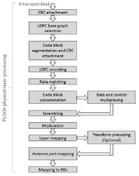CPC vs CPM vs CPA: Advertising Cost Models Explained
Advertisement
This article explains the differences between CPC, CPM, and CPA, commonly used terms in Google Adsense. This guide aims to help Google Adsense publishers understand these terminologies. In the context of online advertising, a website owner is known as a publisher, while companies or individuals who place advertisements on the website are known as advertisers.
CPC - Cost Per Click Bidding
In this type of bidding within the Google Adsense program, the advertiser pays the publisher when a website visitor clicks on the displayed ad. In a CPC bidding campaign, the maximum CPC is set by the advertiser. There are two main bidding types:
- Manual Bidding: The advertiser chooses the bid amount directly.
- Automatic Bidding: Google sets the bids automatically to try and get the most clicks within the budget set by the advertiser.
CPM - Cost Per Thousand Impressions
With CPM bidding in Google Adsense, the advertiser pays based on the number of ad impressions shown on the publisher’s website. Even if the ads haven’t been clicked, the agreed-upon bidding amount is paid.
In a CPM bidding campaign, the advertiser informs Google how much they’re willing to pay for one thousand impressions. CPM is particularly suitable for advertisers who want to raise brand awareness for their product or business.
CPC, on the other hand, is generally ideal for increasing sales of products or driving more traffic to a website from potential customers.
CPA - Cost Per Acquisition Bidding
In this bidding model, the advertiser only pays when a conversion occurs. A conversion represents a desired action taken by a user, such as making a purchase, filling out a form, or subscribing to a newsletter.
CPA bidding aims to acquire customers who will take a specific action on the advertiser’s website after arriving from the publisher’s website through Google’s Adwords (now Google Ads) program. CPA bidding focuses on maximizing conversions and, consequently, revenue.
Related Comparisons:
- Difference between FDM and OFDM
- Difference between SC-FDMA and OFDM
- Difference between SISO and MIMO
- Difference between TDD and FDD
- Difference between 802.11 standards (11-a, 11-b, 11-g, and 11-n)
- OFDM vs OFDMA
- CDMA vs GSM
- Bluetooth vs Zigbee
- Fixed WiMAX vs Mobile WiBro vs Mobile WiMAX
- Microcontroller vs Microprocessor
IoT Wireless Technologies:
- WLAN
- THREAD
- EnOcean
- LoRa
- SIGFOX
- WHDI
- Zigbee
- 6LoWPAN
- Zigbee RF4CE
- Z-Wave
- NFC
- RFID
- INSTEON
 RF
RF


